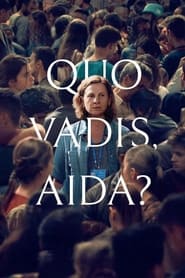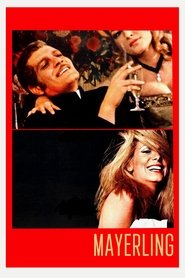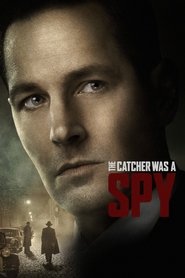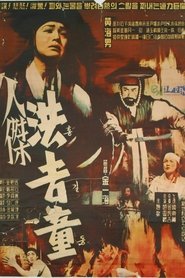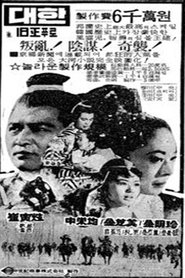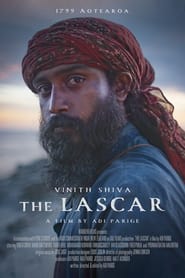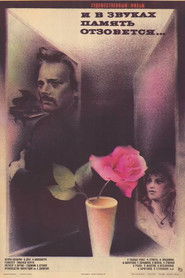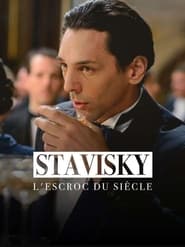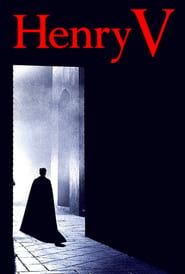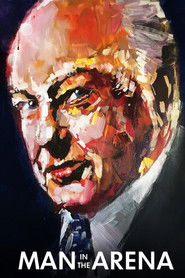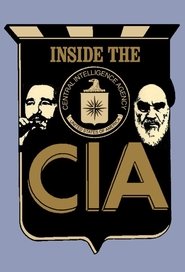Popular History Movies on Tub Tv - Page 175
-
Quo Vadis, Aida?
2021
Quo Vadis, Aida?
2021
star 7.6Bosnia, July 1995. Aida is a translator for the UN in the small town of Srebrenica. When the Serbian army takes over the town, her family is among the thousands of citizens looking for shelter in the UN camp. As an insider to the negotiations Aida has access to crucial information that she needs to interpret. What is at the horizon for her family and people – rescue or death? Which move should she take? -
Mayerling
1968
Mayerling
1968
star 6.2Crown Prince Rudolf of Austria clashes with his father, Emperor Franz Joseph I of Austria, over implementing progressive policies for their country. Rudolf soon feels he is a man born at the wrong time in a country that doesn't realize the need for social reform. The Prince of Wales, later to become Britain's King Edward VII, provides comic relief. Rudolf finds refuge from a loveless marriage with Princess Stéphanie by taking a mistress, Baroness Maria Vetsera. Their untimely demise at Mayerling, the imperial family's hunting lodge, is cloaked in mystery. -
The Catcher Was a Spy
2018
star 6.2Former major league baseball player Moe Berg lives a double life working for the Office of Strategic Services in World War II Europe. -
Hong Kil-Dong
1958
Hong Kil-Dong
1958
-
Wang-geon, the Great
1970
Wang-geon, the Great
1970
General Wang-gun marches on the capitol and overthrows the usurper Ku-jin who had slain the last king of the Shilla Dynasty. Wang-gun becomes king and begins a new era in Korean History--the Koryo Dynasty. -
The Silent Sword: Loyalty and Honor
2008
star 8.5Keinosuke (Masakazu Tamura) is a ronin (wandering samurai) who lives on the streets although he is a nobleman. There’s just one woman in this world that he loves, Shiho (Emi Wakui) but when he meets her again, she is already someone else’s wife. Her husband is a key person in the Chushingura incident. Love reignites between Keinosuke and Shiho but they get caught up in the spiral of fate of the Chushingura incident... -
Maiko and the Assassin
1963
19th century Japan, at the end of the Edo period. A samurai falls in love with a young woman while taking up arms to overthrow the local shogunate. -
Island Home Country
2008
Island Home Country
2008
star 5A poetic cine-essay about race and Australia’s colonised history and how it impacts into the present offering insights into how various individuals deal with the traumatic legacies of British colonialism and its race-based policies. The film’s consultative process, with ‘Respecting Cultures’ (Tasmanian Aboriginal Protocols), offers an evolving shift in Australian historical narratives from the frontier wars, to one of diverse peoples working through historical trauma in a process of decolonisation. -
Michael the Brave
1971
Michael the Brave
1971
star 7.2An epic fresco depicting the reign (1593-1601) of Mihai Pătrașcu (better known as "Mihai Viteazul" / "Michael the Brave"), the famous prince who united the three provinces: Transalpine Vallachia, Transylvania and Moldavia, into the country of Romania, at the end of the 16th century (1599-1601) against the opposition of the Ottoman and Austrian Empires, this movie features large scale battle scenes mixed with political intrigues, murderous treachery, and family drama. -
The Lascar
2024
The Lascar
2024
At the end of the 18th century, hundreds of Indian sailors, known as lascars, worked amongst European settlers in Aotearoa New Zealand - often under the gruesome working conditions of seal hunting gangs. The story follows a lascar, Dasa, who has been abandoned on the coast of Aotearoa NZ by the East India Company, alongside his sealing gang. When Dasa finds himself in the middle of a conflict between his abusive British superior and two Māori traders, he is faced with a choice: bend the knee or take a stand. -
Memories Echoing in Sounds...
1987
star 8Ukrainian composer Mykola Lysenko goes for a walk in Kyiv. Along the way, his memory takes him back in time: first to his childhood in the village of Hrynky; to May 1861, when he attended Taras Shevchenko's funeral; to a trip to Leipzig; to the time when he was working on the opera "Taras Bulba"; to the images of Olha O'Connor and Olha Lypska, who gave him love, happiness, and inspiration. -
Fools
0000
Fools
0000
In 1553, England’s first Queen, Mary I, takes the throne. The country is on the brink of chaos, and ambitious Cardinal Pole plots to secure control. He has overlooked, however, a humble court jester, Jane Foole. The pious, and apparently humorless, Queen Mary finds relief in Foole's brilliant slapstick routines and the two women strike up an unlikely friendship. -
Ding Jun Shan
2005
Ding Jun Shan
2005
star 10Detailing the creation of the first Chinese film ever made, this film was made to celebrate 100 years of Chinese cinema. -
Stavisky, l'escroc du siècle
2016
star 6.2The story of the rise of Alexander Stravisky, a brilliant and seductive crook, in Paris of the roaring twenties. But unchecked greed and corruption does not go unpunished. The political decadence he feeds off will also cause his downfall. -
Haruko's Doll
2018
Haruko's Doll
2018
In the early days of the Showa era in Matsuyama, Ehime Prefecture a newborn baby is abandoned with a doll under the eaves of a merchant house along the pilgrimage route in Shikoku. It seems to be a pilgrim struggling to make a living. This baby girl is named Haruko and brought by Tomita Shizuko and Katsuji as the younger sister of their son Ryosuke who is three years apart. When the war begins, 16-year old Ryosuke qualifies for the naval academy and crosses the Seto Inland Sea. After some consideration, Shizuko tells Haruko the truth that they are not real siblings for the first time. Haruko who has had a secret crush on her brother ever since he said that he would protect her, is innocently overjoyed and heads to Hiroshima to convey this to him. The next day, an atomic bomb explodes in the sky… -
Six Men Mustered in Great Edo
1953
A parody based on Kabuki plays about thieves led by the famous Soshun Kochiyama. -
Case of Umon: Hell’s Windmill
1960
star 6Umon’s services are called upon when innocent bystanders, Kayo and Minokichi, along with the ronin, Gontaro are mistakenly identified as suspects in several recent murder cases. To prove their innocence and uncover the truth, Umon launches his own investigation. -
Henry V
1989
Henry V
1989
star 7.2In 1415, in the midst of the Hundred Years' War, the young King Henry V of England embarks on the conquest of France. -
Man In The Arena
2020
Man In The Arena
2020
star 9.5Man in the Arena is a feature-length documentary film exploring the life and accomplishments of media icon and political strategist Roger Ailes. Long before founding FOX News, Roger Ailes was an Emmy Award winning producer, director, documentarian, sought-after corporate consultant, and top political strategist. Many know of Ailes and his association with FOX, but few know how he got there, his work electing three presidents, or his pioneering mastery of television production and broadcasting. -
On Company Business
1980
On Company Business
1980
star 5.5A controversial three part critical documentary on the history of the CIA.
 Netflix
Netflix
 Amazon Prime Video
Amazon Prime Video
 Apple iTunes
Apple iTunes
 Apple TV Plus
Apple TV Plus
 Disney Plus
Disney Plus
 Google Play Movies
Google Play Movies
 Paramount Plus
Paramount Plus
 Hulu
Hulu
 HBO Max
HBO Max
 YouTube
YouTube
 fuboTV
fuboTV
 Peacock
Peacock
 Peacock Premium
Peacock Premium
 Amazon Video
Amazon Video
 The Roku Channel
The Roku Channel
 AMC+
AMC+
 Kocowa
Kocowa
 Hoopla
Hoopla
 The CW
The CW
 Vudu
Vudu
 Starz
Starz
 Showtime
Showtime
 PBS
PBS
 Pantaflix
Pantaflix
 FXNow
FXNow
 Tubi TV
Tubi TV
 Kanopy
Kanopy
 Comedy Central
Comedy Central
 Crunchyroll
Crunchyroll
 Microsoft Store
Microsoft Store
 Redbox
Redbox
 Sun Nxt
Sun Nxt
 ABC
ABC
 DIRECTV
DIRECTV
 Crackle
Crackle
 Fandor
Fandor
 Plex
Plex
